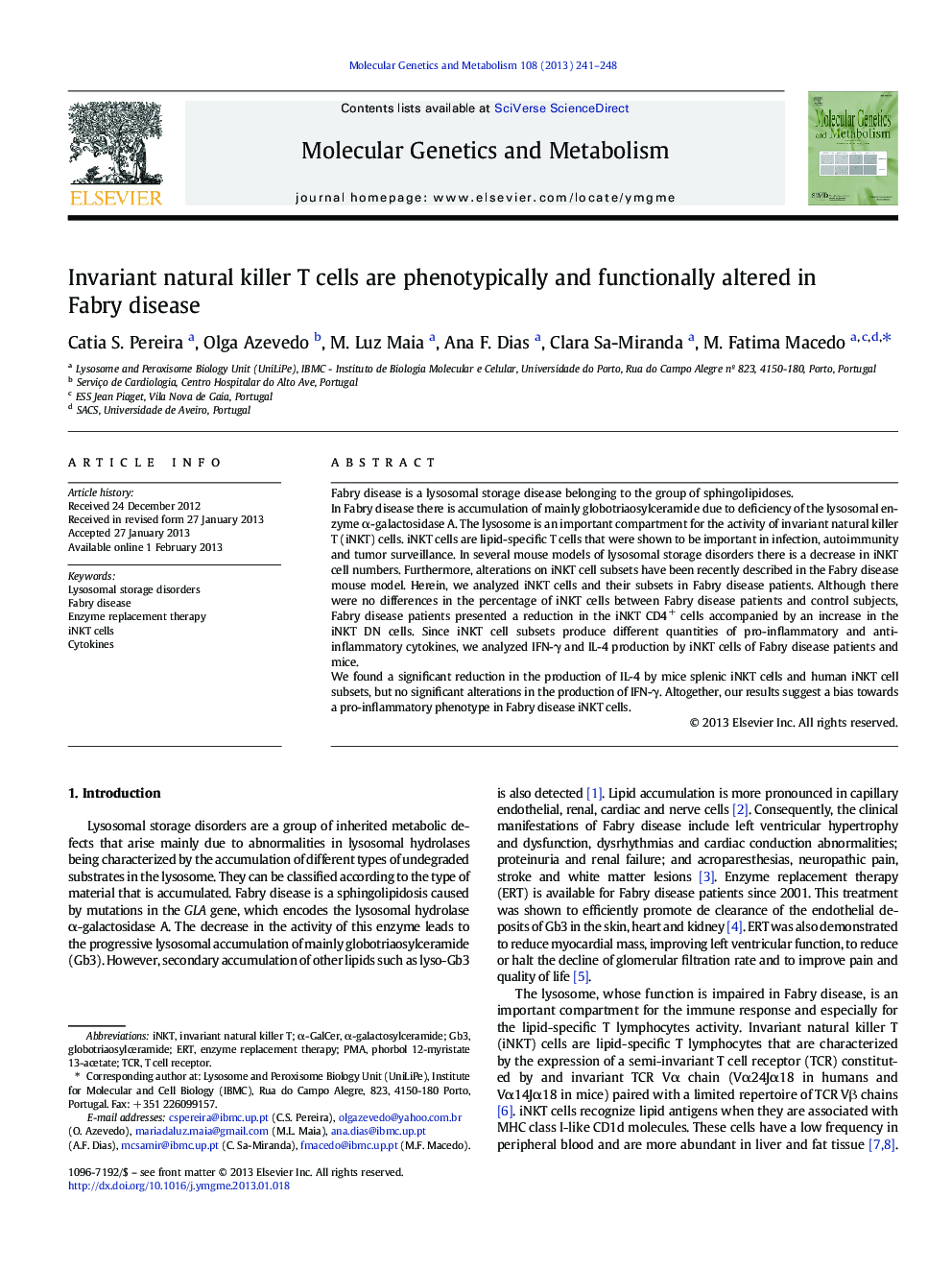| Article ID | Journal | Published Year | Pages | File Type |
|---|---|---|---|---|
| 1998479 | Molecular Genetics and Metabolism | 2013 | 8 Pages |
Fabry disease is a lysosomal storage disease belonging to the group of sphingolipidoses.In Fabry disease there is accumulation of mainly globotriaosylceramide due to deficiency of the lysosomal enzyme α-galactosidase A. The lysosome is an important compartment for the activity of invariant natural killer T (iNKT) cells. iNKT cells are lipid-specific T cells that were shown to be important in infection, autoimmunity and tumor surveillance. In several mouse models of lysosomal storage disorders there is a decrease in iNKT cell numbers. Furthermore, alterations on iNKT cell subsets have been recently described in the Fabry disease mouse model. Herein, we analyzed iNKT cells and their subsets in Fabry disease patients. Although there were no differences in the percentage of iNKT cells between Fabry disease patients and control subjects, Fabry disease patients presented a reduction in the iNKT CD4+ cells accompanied by an increase in the iNKT DN cells. Since iNKT cell subsets produce different quantities of pro-inflammatory and anti-inflammatory cytokines, we analyzed IFN-γ and IL-4 production by iNKT cells of Fabry disease patients and mice.We found a significant reduction in the production of IL-4 by mice splenic iNKT cells and human iNKT cell subsets, but no significant alterations in the production of IFN-γ. Altogether, our results suggest a bias towards a pro-inflammatory phenotype in Fabry disease iNKT cells.
► Fabry disease patients present a reduction in the percentage of iNKT CD4+ cells accompanied by an increase in the iNKT DN cells. ► The expression on the anti-inflammatory cytokine IL-4 by both Fabry disease patients and Fabry disease mouse model iNKT subsets is reduced.
